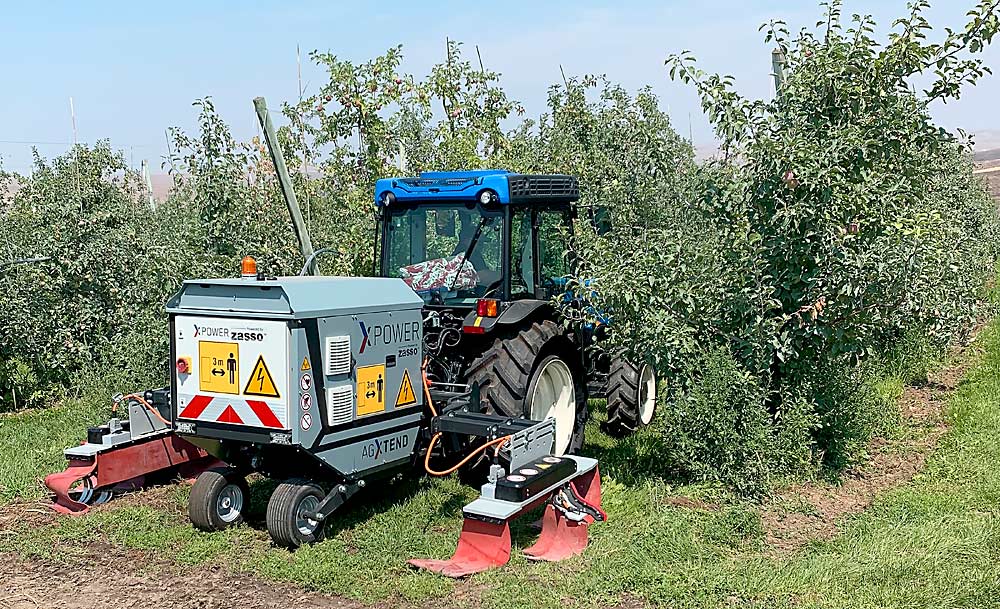
A new generation of weeding technology is emerging for specialty crops, but it’s not yet clear which new tools will work economically in orchards and vineyards. Researchers and manufacturers are trialing new weeding machines to see how well they pencil out in permanent fruit crop systems.
Zasso electric weeder
Oregon State University associate professor and weed scientist Marcelo Moretti and doctoral student Luisa Baccin have been studying an electric weeder designed by Swiss company Zasso. As part of a multistate weed management project funded by a U.S. Department of Agriculture grant, Baccin conducted trials in a young blueberry planting at an OSU research farm in 2023.
Pulled by a tractor, the Zasso weeder has metal electrodes underneath that kill weeds with controlled electric discharges. The electrodes don’t touch the blueberry plants. Compared to the standard practice of mowing, the Zasso weeder better controlled weeds in the 2023 trials, with no impact on soil health or crop yield, Baccin said.
They tested tractor speed and number of applications. So far, they’ve learned that providing fewer applications at a slower speed provides better weed control in the short term, but faster speeds in sequential applications are more economical in the long term because they cover more ground. They’ll conduct further trials in research and commercial fields, Baccin said.
Pacific Northwest blueberry growers typically use plastic mulch to suppress weeds. Electric weeding can melt the plastic, so it isn’t a good fit with that system. But combined with organic mulch, it could present an alternative to using plastic, which is expensive and labor-intensive, Baccin said.
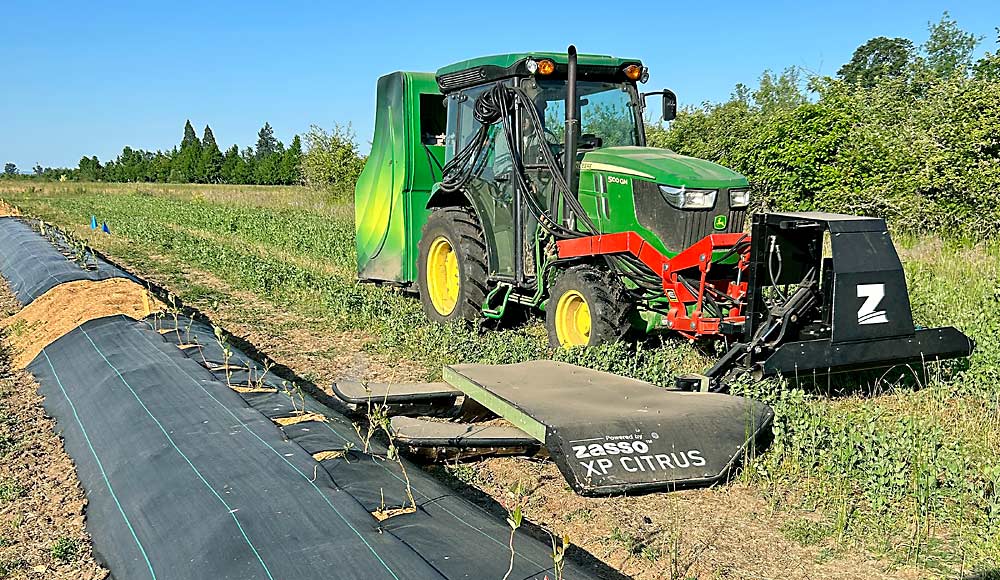
Burrows Tractor, a Washington state distributor, will have a few Zasso weeders to offer this year, said ag technology manager TJ Lange.
Fruit growers are increasingly looking for alternatives to herbicides and mechanical weeding, especially organic growers. Burrows has trialed the Zasso weeder in apples and hops, and the company will work with Washington State University researchers on vineyard trials this year, Lange said.
Rui Liu, assistant professor and weed specialist at WSU’s Irrigated Agriculture Research and Extension Center in Prosser, will compare the efficacy and cost of the Zasso electric weeder to other weeding methods. The Washington State Wine Commission is providing financial support, she said.
Ted over-the-row weeder
France’s Naio Technologies has developed an autonomous over-the-row vineyard weeder called Ted, said business development manager Charlotte Mignol.
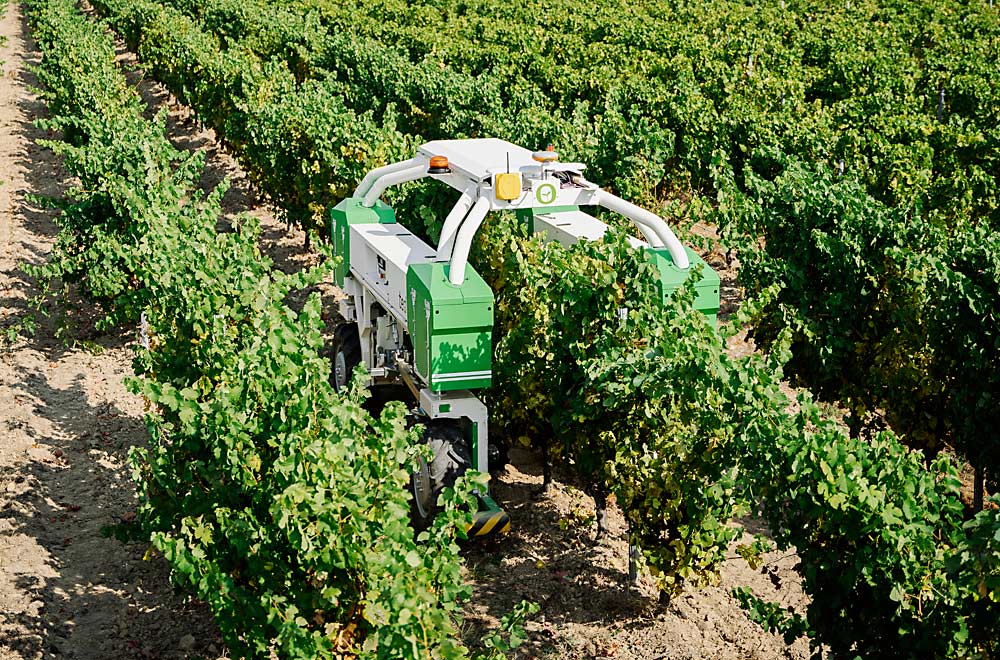
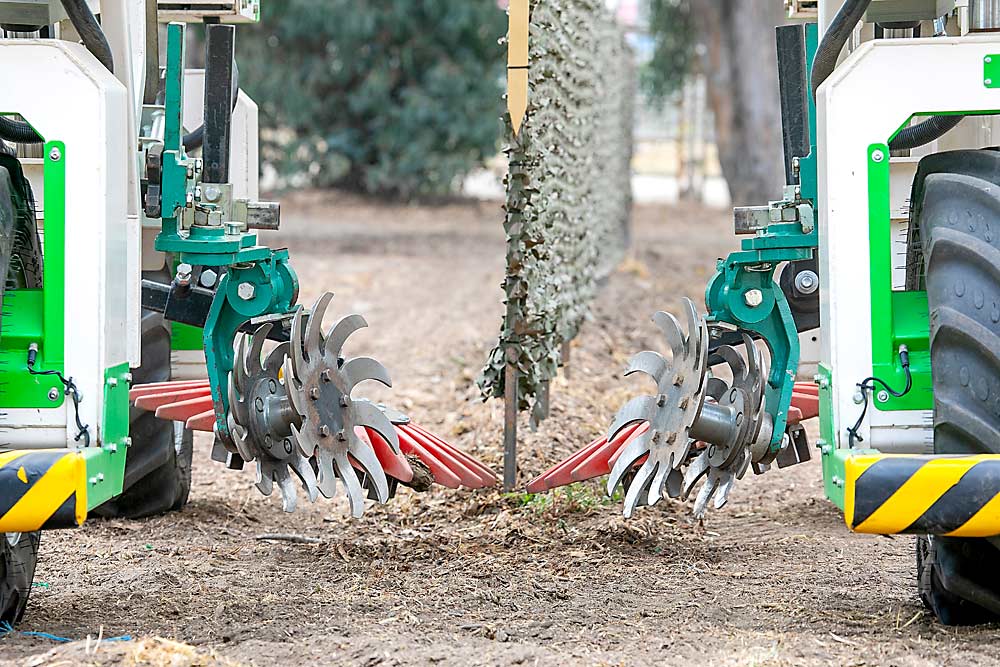
The electric-powered weeder has two sizes and is equipped with real-time kinematic GPS to guide its path. The machine’s arch straddles the row as its wheels travel through the vineyard. Multiple weeding implements can be attached near the bottom on each side, including blades, discs, plows, inter-vine tools and finger hoes. A spring arm folds back the weeding attachments to protect grapevine trunks.
The weeder was on display at the FIRA USA technology conference in Salinas, California, last September. Naio Technologies has vineyard clients in Europe and North America. Edney Distributing Co. is selling the machine in the Midwest, and Vitis-import is selling it in Canada, Mignol said.
—by Matt Milkovich


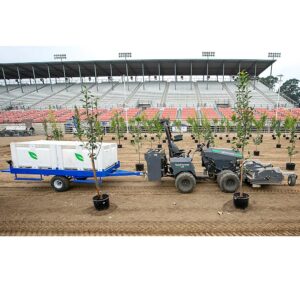





Leave A Comment